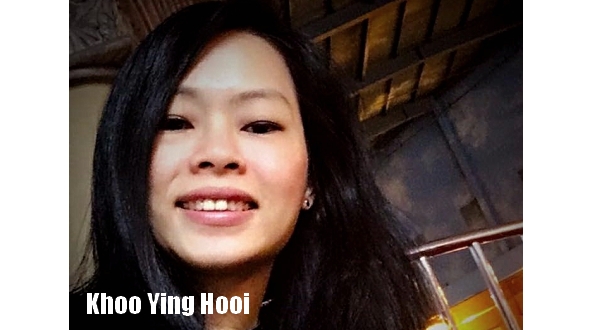
By Khoo Ying Hooi
It has been 19 months since Tun Dr. Mahathir Mohamad led the Pakatan Harapan coalition to form the new government, but it has not been a smooth one thus far. From time to time, people seem to be losing patience for reforms and there is a clear anxiety about the country’s direction. For those hoping for a better Malaysia, 2019 could seem a dispiriting time after the euphoria mood in 2018.
As we are looking back to what we have gone through in the year of 2019, the public as well as the political commentators are split into different opinions to the future of the country. The slow pace of reforms is one reason for concern, but the bigger question is about the leadership – the question of when and if he will hand over power to Datuk Seri Anwar Ibrahim, the successor-in-waiting. Will Mahathir stay the full term, or will he hand the reins to Anwar as planned?
In fact, leadership crisis is not new in Malaysia. After the change of government, Malaysians continue to be divided in many ways, politically, economically and socially. We face a crisis of political leadership, and that crisis is real. Looking back in the history, we do not normally have “new blood” to lead the country. Why is that happening? There are many reasons. Apart from the political structure that we have, it is also a question of our political culture.
As we step into a new year, the leadership crisis is reaching another new level – one that can possibly reverse what we have achieved in the landmark election on 9 May 2018. On the contrary, Britain has rather tragically become a byword for dysfunction and an inability to resolve pressing political leadership crisis in the unforeseen Brexit crisis that continues to destabilise the political situation in which it has put Britain into a deep crisis with no clear direction. No one would have expected this situation to happen in the Britain, which is known as politically stable.
The leadership tension that we are currently facing is a surface expression of a deeper issue that we have in the society. We continue to let the political administration to be top-down like it was, after the one-decade long protest struggle in the electoral reform movement, Bersih 2.0 that has triggered some changes in our attitude towards democracy. What we achieved in May 2018 is an accumulation of the six-decade long of mindset control and grievances.
We face a crisis where the politicians lack the will to reach out to bridge the divide. We face a crisis where the politicians have not been able to bind their respective coalitions together to sustain the reforms that we are currently undergoing. While there has been positive development in parliamentary democracy, more needs to work on building and sustaining the faith of the people to the system as the belief in strongman politics continue.
This mood is dangerous as it strikes at the legitimacy of the institutions, even the idea of democracy. It didn’t take long for PH’s political honeymoon to end, as it is also facing resistance from the people, especially when it comes to difficult policy choices even though some are good policies in the long run, for instance the reforms that are moving towards a more human rights compliance environment such as the ratification of the International Convention on the Elimination of the Racial Discrimination (ICERD). It has not been able to convince people of its benefits. It is a failure of political imagination and purpose as much as it is a manifestation of the reform spirit.
How would any leaders cope in such circumstances? What would the prospects for our newfound democracy? The pessimists probably have the best answers to such questions. It is not simply that politicians seem perennially unable to transcend narrow national interests, but that even a national agenda is becoming harder to pursue. Our political leaders although are not entirely to blame for this, but they have responsibilities to prevent this. The debate around reforms demonstrates just how parochial our politics remains, and how politically difficult it can be for politicians to try and promote difficult ideas with limited popular support.
Precisely because political leadership sits at the heart of how we try to understand and explain the functioning of political systems, there seems to be a concerted effort toward exploring how political elites might exercise leadership in contexts marked by change and instability. Political leaders, regardless of party affiliation, have a moral responsibility to challenge and counter any ill elements in the country. Even more, it will require what many politicians seem to be either completely averse to or completely void of – principle.
2019 saw an upsurge in the mass movement in many different countries: Spain, Catalonia, Lebanon, Hong Kong, Iraq and the list goes on. The youth particularly feel the power of collective class action. Sooner or later, we might again seeing this happening again, most likely with a clearer vision of what is needed.
With a complex web of interests jostling for power within the PH, it remains to be seen if the coalition can stay united until the next election. Leadership is dependent upon them because leadership provides direction. The ability to do so is not only evidence of character; it is also proof of adherence to principles that the leaders should uphold. The concept of hope can be hard to grasp as we turn into 2020, but we have gone too far to feel hopeless. What is important is we continue to believe every small action can gives us a voice and provides courage far beyond what we can accomplish in our individual silos.
(
Khoo Ying Hooi
is Universiti Malaya Senior Lecturer.)






0812ed4e-cac1-4f1d-9f26-d46cc751cd59ee29c23c-ceda-469d-b5af-f7e5a42a24c8.jpg)
1ee30310-67e3-4804-92f2-dde0c6e26894bd4a1f69-8679-4521-b5d5-7a1f0df06493.jpg)
a0621fc9-47cd-48f3-addb-82c6890cff6c411967ae-86f6-48bc-8075-707e31398849.jpg)
d7b1c578-d473-465f-b1f6-be11b88220fbbb5e3d26-0a3a-4930-addd-355a5ea6d48a.jpeg)
a698d713-9324-4c81-adcd-2b8280fd61013552d167-c034-4978-a923-8159a2c79294.jpg)
79a03b9f-ccd3-4ed9-9155-83b62ddaf491215efd35-dba2-488e-b370-b8c7c2fe2b1e.png)